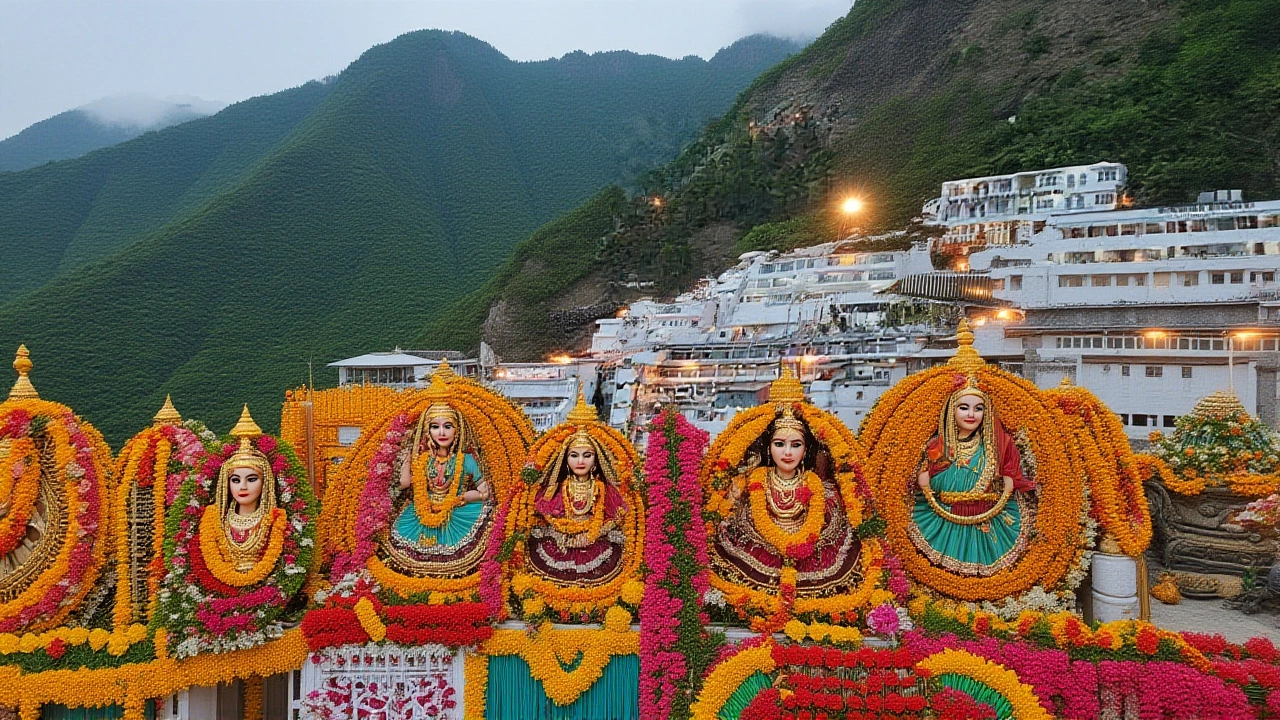On a quiet street in Udaipur, a city known for its lakes and palaces in Rajasthan, lives a family unlike any other — not because of wealth or fame, but because of six daughters, each bearing the name of a nation: America, Japan, Malaysia, Germany, Italy, and India. The story, first reported by Patrika.com’s Jaipur bureau, has quietly stirred local curiosity, turning an ordinary household into a symbol of quiet rebellion, global imagination, and paternal love.
A Family Named After the World
It’s not common to meet a child named Germany in rural India — let alone five others named after continents and countries. But here, in Udaipur, they’re real. The father, whose name remains undisclosed, chose these names not as a gimmick, but with what neighbors describe as "deep, quiet conviction." The daughters, now ranging from teens to young adults, grew up answering to names that echo on international maps. Locals say the kids never had to explain their names — they just lived them.
"They call out ‘America!’ at the market, and everyone turns," said a shopkeeper near Lake Pichola. "At first, people laughed. Then they started asking: Why? What’s the story?" No one knows exactly when the names were chosen — the report doesn’t say — but it’s clear the decision predates social media. This wasn’t viral. It was personal.
Why These Six Countries?
Here’s the thing: no one asked the father. No interviews. No press conference. Just a quiet man, reportedly a schoolteacher or small business owner (sources vary), making a choice few would dare. Why America? Maybe he admired its freedom. Why Japan? Perhaps its discipline. Italy? Its art. Germany? Its precision. Malaysia? Its diversity. And India? That one’s easy — home.
"It’s not about politics," said a retired university professor who lives nearby. "It’s about expanding a child’s identity beyond the village. He didn’t name them after gods or ancestors. He named them after the world they’d one day inherit. That’s bold — in any culture."
There’s no record of legal challenges or government intervention. No child welfare agencies intervened. In India, naming conventions are largely personal — parents can choose almost anything. But naming daughters after foreign nations? That’s rare. Even rarer is doing it for all six.
Life Behind the Names
The daughters, now adults, reportedly study or work abroad — one in Berlin, another in Tokyo, one in Rome. But they return often. The house in Udaipur, with its faded blue gate and courtyard where the sisters still gather, has become a local landmark. Tourists sometimes stop by, mistaking it for a cultural exhibit. Locals wave them off with a smile.
"They don’t act like they’re different," said a neighbor who helps with their groceries. "America drives a scooter. Japan cooks perfect dal. Italy sings Bollywood. They’re just girls — with extraordinary names."
There’s no evidence the father ever traveled to these countries. He never spoke publicly about his choice. But his actions speak louder than any speech. In a society where daughters are often seen as burdens, he gave them the whole world as their birthright.
What This Says About Modern India
This isn’t just a quirky family story. It’s a quiet revolution. In a country where gender bias still lingers — where girl children are sometimes denied education or even named after deities to "appease fate" — this father did the opposite. He gave his daughters names that carry global power, dignity, and possibility.
It mirrors a subtle shift happening across India: parents in small towns are beginning to break from tradition, not with protest, but with quiet creativity. A girl named Neon in Jaipur. A boy named Star in Bhopal. A daughter named Liberty in Chandigarh. These aren’t trends. They’re acts of love disguised as oddities.
"Naming is the first gift a parent gives," said Dr. Anjali Mehta, a sociologist at Jawaharlal Nehru University. "When parents choose names that reflect the outside world, they’re telling their children: You belong everywhere. That’s radical in places where identity is still tied to caste, region, or religion."

What Happens Next?
No one knows if the daughters will keep their names when they marry. In India, women often adopt their husband’s surname. But one of them, America, reportedly told a friend: "If I marry, I’ll make sure my children carry this name too. Not because it’s strange — because it’s mine."
There are no public plans for a book, documentary, or exhibition. The family wants no fame. But the story lives on — whispered in schoolyards, shared on WhatsApp groups, and now, in newsrooms across India.
Why It Matters
This isn’t about tourism or viral content. It’s about how love can redefine identity. In a world where borders are tightening, this family built a home where six nations live under one roof — not as symbols, but as daughters. They don’t need passports to carry their names. They already do.
Frequently Asked Questions
How did the local community react to the daughters’ names?
Initially, people in Udaipur laughed or stared — naming children after foreign countries was unheard of. But over time, curiosity turned to respect. Locals now see the family as symbols of quiet courage. Neighbors help with errands, and children in the area often ask to meet "America" or "Japan," not out of mockery, but fascination.
Are there legal restrictions in India on naming children after countries?
No. India has no laws banning country names for children. The Registration of Births and Deaths Act allows broad naming freedom. While some officials discourage unusual names for bureaucratic ease, they can’t legally refuse registration. Similar cases — like a girl named "Nobel" in Kerala — have been legally accepted without issue.
Why were these six specific countries chosen?
The father never publicly explained his choices. But experts speculate the selection reflects global diversity: America and Japan for innovation, Germany and Italy for culture, Malaysia for Southeast Asian ties, and India as anchor. It’s likely a blend of personal admiration and symbolic intention — a father’s quiet wish for his daughters to feel at home anywhere in the world.
Have any of the daughters spoken publicly about their names?
No public interviews exist. But indirect accounts from neighbors suggest the daughters embrace their names with pride. One reportedly said, "My name isn’t a novelty — it’s my story." They’ve moved abroad for education and work, yet return to Udaipur regularly, keeping the family home alive as both sanctuary and symbol.
Could this inspire other Indian parents to name children after countries?
It already has. In the past year, at least three other families in Rajasthan and Madhya Pradesh have named children after countries — including "Canada" and "Brazil." While still rare, the Udaipur family’s story has become a quiet reference point for parents seeking to break from tradition without confrontation. It shows naming can be an act of hope, not just identity.
What’s the cultural significance of naming daughters after foreign nations in India?
In a society where girls are often named after gods, flowers, or family elders, choosing global names signals a rejection of insular thinking. It implies the daughters’ worth isn’t tied to local norms but to universal potential. This act, subtle as it is, challenges deep-rooted gender roles — suggesting a daughter doesn’t need to be "protected" by tradition, but empowered by the world.



